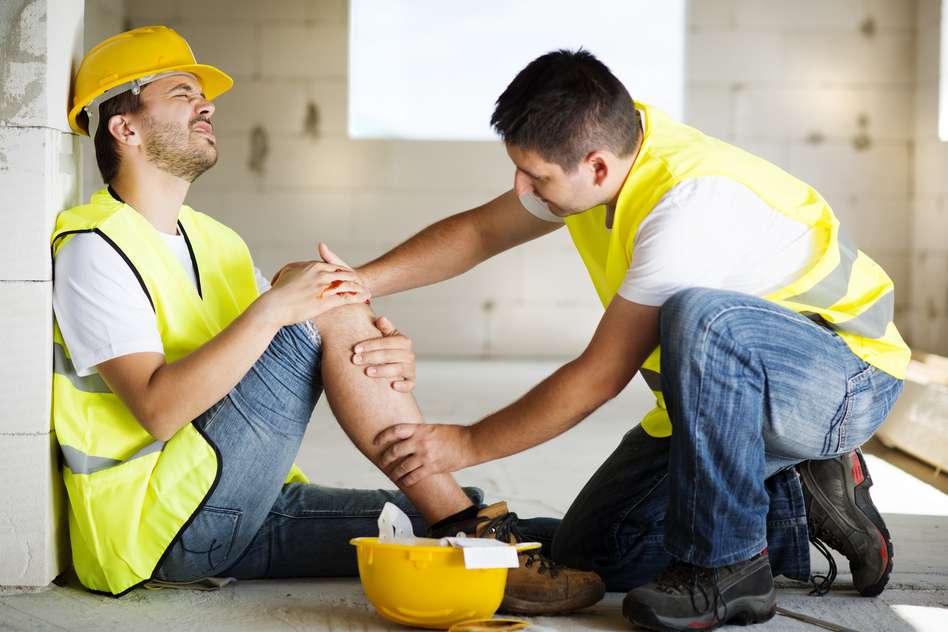Health and Safety in the workplace

Whilst it is never a pleasant thing to think about accidents at work, they do occur. In order to avoid enforcement action corporate entities, directors and individuals need to ensure they comply with all relevant health and safety legislation or run the risk of large penalties and sanctions, convictions and reputational harm.
As a result, regulatory compliance is forming a critical part of everyday life. Let’s look at the statistics.
Latest figures from the Health and Safety Executive for 2021 / 2022 show a 28% increase in worker injuries year on year and a steep increase in ill health compared to pre COVID 19 pandemic levels.
Summary of the Statistics
- 914,000 workers suffering work-related stress, depression or anxiety
- 477,000 workers suffering from a work-related musculoskeletal disorder
- 123,000 workers suffering from Covid-19 which they believe may have been from an exposure at work.
- 123 workers killed in work-related accidents
- 565,000 workers sustained a non-fatal injury – representing a year-on-year increase of 28%, but still below that of pre-pandemic levels
- 61,713 injuries to employees reported under RIDDOR
- 36.8 million working days lost due to work-related illness and workplace injury
- £18.8 billion estimated cost of injuries and ill health from current working conditions
What are employers required to undertake?
What to consider if a workplace accident takes place?
What injuries are considered to be reportable?
Why is it important to review the accident book?
When and how to report an incident?
Where to report a workplace incident?
What are employers required to undertake?
Health and Safety law states that employers must:
- assess the risk to employees, customers and partners. They are also required to assess the risk to any other people who could be affected by their activities;
- arrange for the effective planning, organisation, control, monitoring and review of preventive and protective measures;
- have a written health and safety policy if they employ five or more people;
- ensure they have access to competent health and safety advice;
- consult employees about their risks at work and current preventive and protective measures.
What to consider if a workplace accident takes place?
Reporting of Injuries, Diseases and Dangerous Occurrences Regulations 2013 [RIDDOR] places a duty upon employers, the self-employed and people in control of work premises, also known as the responsible person, to report certain serious workplace accidents, occupational diseases and specified dangerous occurrences.
A RIDDOR report is required when the incident is work related or if it results in an injury of a type which is considered to be “reportable”.
The purpose of reporting is to warn the relevant authorities that an incident has occurred so that the Health and Safety Executive may review the circumstance, prevent a similar incident occurring again and to ensure compliance with the regulations.
Work related injuries will vary from sector to sector but common areas where work related injuries occur are falls from height, being struck by a moving vehicle and slips, trips and falls.
What injuries are considered to be reportable?
Deaths
Regulation 6 of RIDDOR states all deaths of both workers and non-workers arising from a work-related incident must be reported. It is important to note that deaths are also deemed reportable if the injured person died within one year following the work related incident.
Non fatal Injuries
- Regulation 4 of RIDDOR deals with non-fatal injuries that must be reported by the Responsible Person these are:
- fractures, other than fingers, thumbs, and toes
- amputation
- any injury likely to lead to permanent loss of sight or reduction in sight
- any crush injury to the head or torso causing damage to the brain or internal organs
- serious burns (including scalding) which covers more than 10% of the body and/ or causes significant damage to the eyes, respiratory system, or other vital organs
- any scalping which requires hospital treatment
- any loss of consciousness caused by head injury or asphyxia
- any other injury arising from working in an enclosed space which leads to hypothermia or heat induced illness and/ or requires resuscitation or admittance to hospital for more than 24 hours
Diseases which have been caused or made worse as a result of work must be reported. This included diagnosis of:
- carpal tunnel syndrome;
- severe cramp of the hand or forearm;
- occupational dermatitis;
- hand-arm vibration syndrome;
- occupational asthma;
- tendonitis or tenosynovitis of the hand or forearm;
- any occupational cancer;
- any disease attributed to an occupational exposure to a biological agent
What records need to be kept?
Regulation 12 of RIDDOR requires the responsible person to keep a record of any reportable injury, which includes any injury which results in the injured person being unable to carry out their normal work for more than 3 days.
The record must be kept for 3 years from the date in which it was made, this may be kept in the form of an accident book. The accident book must include the following information:
- Date and time of accident/ diagnosis of disease;
- the person’s full name;
- injury / diagnosed disease;
- their occupation;
- where not at work their status;
- The location of the accident;
- A brief description of the circumstances/ nature of the disease;
- The date the incident was first notified to the authorities;
- The method used to report the incident;
Why is it important to review the accident book?
The Accident Book is an essential document for employers and employees, who are required by law to record and report details of specified work-related injuries and incidents.
There are a few reasons why an accident book is a workplace essential. The information in the book can help to identify risks and accident trends, which can help to prevent accidents in the future. The accident book can also help in cases where the injured person decides to pursue compensation, or when the company is being investigated for potentially breaching health and safety regulations.
It enables businesses to comply with legal requirements under health and safety legislation, including Reporting of Injuries, Diseases and Dangerous Occurrences Regulations (RIDDOR) requirements.
When and how to report?
The responsible person must notify the relevant authority of the reportable incident by the quickest means and without delay. The Regulations require the responsible person to send a report of the incident within 10 days.
If a worker is incapacitated for more than seven consecutive days, the accident must be reported. For incapacitation over three days, the accident must be recorded but not necessarily reported.
When submitting a RIDDOR you will be able to download a copy of the submission to keep for your records, it is advisable to do so.
As with all health and safety issues in the workplace, employers, the self-employed and the Responsible Person should ensure they are fully up to date with the reporting requirements for RIDDOR. They should also make sure that the accident book is kept up to date. Accurate records are essential to protect employers, employees and, where appropriate, members of the public.
Accidents to members of the public or others who are not at work must be reported if they result in an injury and the person is taken directly from the scene of the accident to hospital for treatment to that injury. Examinations and diagnostic tests do not constitute 'treatment' in such circumstances. There is also no need to report incidents where people are taken to hospital purely as a precaution when no injury is apparent.
Where to report a workplace incident?
Any workplace incident can be reported online via the Health and Safety Executive website or via telephone. Please visit the Health and Safety Executive website for the relevant contact details.
Failing to report a reportable incident is a criminal offence. Not knowing the proper procedure for RIDDOR is not a defence, therefore it is critical that you understand and comply with the regulations to prevent investigation and prosecution by the Health and Safety Executive.
Call our specialist solicitors on 0808 231 1320
Tees are here to help
We have many specialist lawyers who are based in:
Cambridgeshire: Cambridge
Essex: Brentwood, Chelmsford, and Saffron Walden
Hertfordshire: Bishop's Stortford and Royston
But we can help you wherever you are in England and Wales.
Chat to the Author, Jamie Hare
Associate, Dispute Resolution and Litigation, Chelmsford office
Meet Jamie
